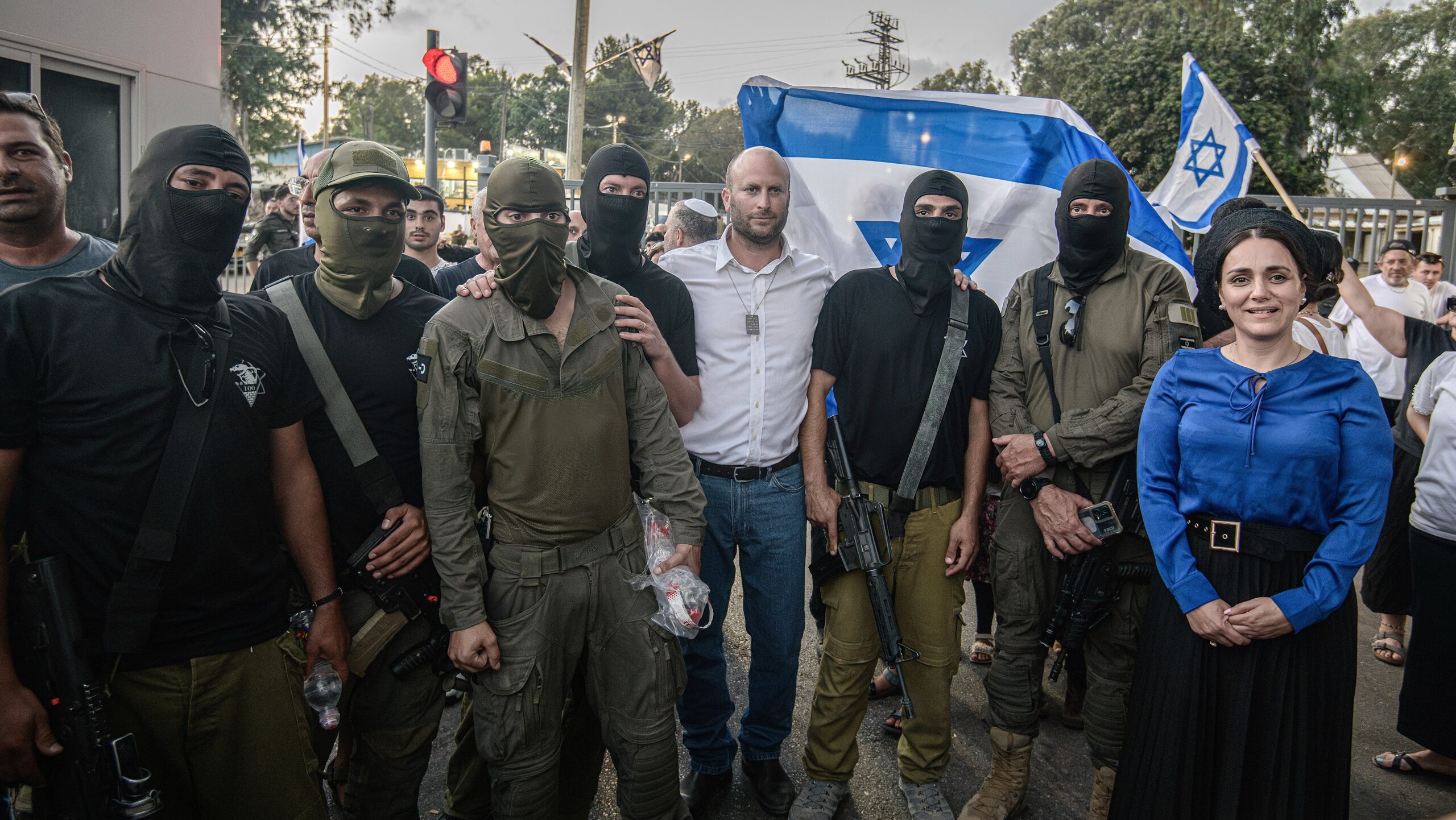‘Only Force’: Far-Right MKs Say New Gaza Truce Would Betray October 7 Victims
As the US pushes for a Gaza ceasefire, MKs from Otzma Yehudit and Religious Zionism reject any deal that leaves Hamas in power. “Evil must be eradicated,” says Ohad Tal. “Even a partial truce is abandonment,” warns Yitzhak Kroizer.
Two of the Israeli coalition’s most hard-line factions—Religious Zionism and Otzma Yehudit—are warning Prime Minister Benjamin Netanyahu not to yield to growing American pressure for a new ceasefire agreement with Hamas. In comments to The Media Line, Knesset members Ohad Tal and Yitzhak Kroizer made clear that any deal leaving Hamas’ military or governing structure intact would be unacceptable—and could trigger political consequences.
A temporary ceasefire that leaves Hamas in power in the Gaza Strip, even partially, is recklessness
Representing Otzma Yehudit, Kroizer issued one of the strongest statements yet against the proposed truce. “A temporary ceasefire that leaves Hamas in power in the Gaza Strip, even partially, is recklessness,” he said. “The events of October 7 have proven time and again that Hamas is a radical terrorist organization that understands only force.” For Kroizer, deterrence and long-term security can only be achieved through one outcome: “The goal must be one: the complete elimination of Hamas’ military and governing capabilities. Only in this way can we guarantee real peace and long-term security for Israeli citizens—and prevent the next October 7.”
Such agreements constitute a moral injustice, as they increase the likelihood that some hostages will be left behind—effectively condemning them to death
Tal, a member of Religious Zionism, echoed these red lines and called partial hostage deals a “moral injustice.” “Such agreements constitute a moral injustice, as they increase the likelihood that some hostages will be left behind—effectively condemning them to death,” he said. “It is inconceivable that a murderous organization responsible for the October 7 atrocities—the worst crimes against Jews since the Holocaust—would continue to rule Gaza, just across our border. Evil must be eradicated.”
Give the gift of hope
We practice what we preach:
accurate, fearless journalism. But we can't do it alone.
- On the ground in Gaza, Syria, Israel, Egypt, Pakistan, and more
- Our program trained more than 100 journalists
- Calling out fake news and reporting real facts
- On the ground in Gaza, Syria, Israel, Egypt, Pakistan, and more
- Our program trained more than 100 journalists
- Calling out fake news and reporting real facts
Join us.
Support The Media Line. Save democracy.


Although both parties entered the Knesset in a joint alliance in 2022, their paths have since diverged. Otzma Yehudit briefly left the government during a previous ceasefire agreement with Hamas, while Religious Zionism remained in the coalition. The current crisis threatens to deepen those fissures, as another round of negotiations inches forward.
In response to a question about the new US-backed initiative reportedly endorsed by President Donald Trump, Kroizer was respectful but firm. “We have great respect for President Donald Trump and his unwavering support for Israel over the years,” he said. “However, Israel’s security interest comes first. Our uncompromising position is that the mission must be completed and Hamas must be completely dismantled. Any initiative—regardless of the source—that does not align with the need for total military victory over Hamas and the return of the hostages is unacceptable to us.” Decisions about Israeli security, he added, “must be made in Jerusalem alone.”
Tal also acknowledged President Trump’s support, saying he remains “a true friend of the State of Israel.” But he added, “Even if it may cause disagreement with our greatest ally, Israel must do what is right for Israel.”
When asked whether a ceasefire could fracture the coalition, both lawmakers emphasized their party principles. Kroizer stressed that Otzma Yehudit joined the government “out of a deep commitment to Israel’s security.” Still, he left no room for compromise: “If the government chooses a path of ceasefire that does not include the complete dismantling of Hamas’ military and governing power, this would be a step we cannot accept. We will conduct a deep discussion and ensure that we act in accordance with our conscience and our commitment to our voters.”
Tal struck a more conditional tone. “If the goals of the war can be achieved through an agreement, we are in favor. There is no point in continuing the war just for the sake of saying we continued the war,” he said. But he too closed with a warning: “We cannot stop before total victory—before dismantling Hamas’ military and civil capabilities.”
Despite more than a year and a half of intense combat, the war has yet to deliver the decisive victory many on Israel’s political right demand. Hamas’ central command has been disrupted, but Israeli military strategists acknowledge the group has adapted, embedding operatives deeper into civilian areas and regrouping in unexpected locations. In recent weeks, fighting has resumed in areas previously declared cleared by the Israel Defense Forces, raising doubts about the durability of Israeli control.
Both Tal and Kroizer reject the notion that this evolving battlefield reality justifies a negotiated pause. For them, the continued presence of Hamas fighters anywhere in Gaza is not a tactical challenge—it is a strategic failure that must be reversed, not managed. “The mission must be completed and Hamas must be completely dismantled,” Kroizer said again, insisting that anything short of full elimination is “a step we cannot accept.”
While Washington pushes for a 60-day ceasefire as part of a broader plan for hostage release and political transition in Gaza, opposition from coalition factions like Otzma Yehudit and Religious Zionism remains firm. For Netanyahu, who has publicly promised a postwar Gaza “without Hamas,” the challenge now is navigating between rising international expectations and the demands of his own political base.
Rhetoric from the far right is hardening as the war enters its 21st month. The cost of agreeing to a ceasefire may no longer be measured only in political capital—but in the survival of the governing coalition itself.

